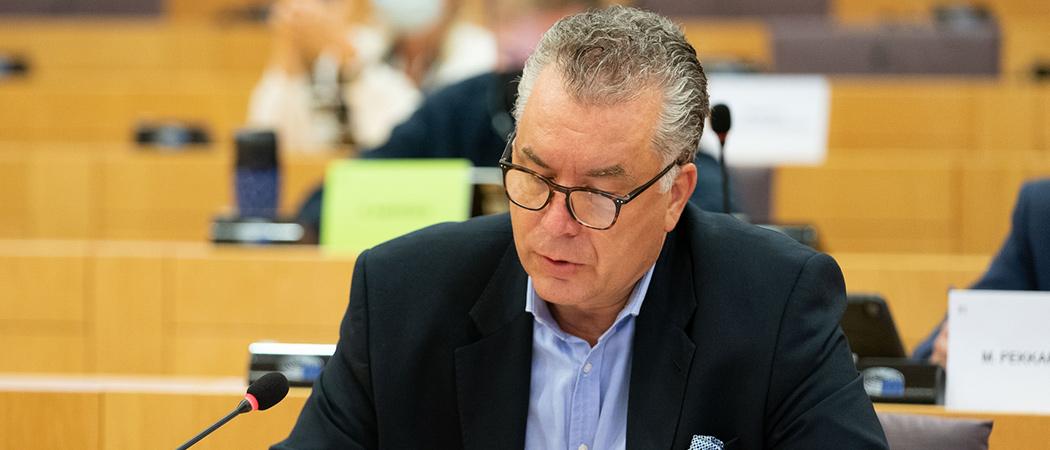Making researchers demonstrate their projects will not harm biodiversity or the environment only adds to bureaucratic overheads, say MEPs. They are threatening to take the Commission to court over the matter

Christian Ehler, Member of the European Parliament. Photo: European Union
The European Commission wants to mandate that Horizon Europe applicants must prove their research will not harm biodiversity and the climate, but MEPs say this will create uncertainty and an extra administrative burden for researchers.
“It’s an ideological principle. In practical terms, it’s difficult for evaluators and researchers to understand what to do,” Christian Ehler MEP told Science|Business. “The Commission limits research more and more, always wanting to put research into political proportion.”
The added administrative burden of the ‘do no significant harm’ principle goes against years of efforts to simplify the programme for prospective applicants, believes Ehler, a European Parliament rapporteur on Horizon Europe, who has long campaigned for less red tape.
The Commission introduced the ‘do no significant harm’ principle in Horizon Europe as part of the EU’s creation of a common classification system for sustainable economic activities, referred to as the EU taxonomy.
In practice, it means grant applicants will have to show their proposed projects will not harm biodiversity and the environment. Technically, non-compliance with the principle will not affect evaluation, but will tip the scales in case of a tie.
Four Horizon Europe rapporteurs – Ehler, Dan Nica, Martina Dlabajov and Evžen Tošenovský – first challenged the principle in a question posed to the Commission in July, saying it is pointless to increase the workload if there is no influence on the evaluation.
Ehler believes this is especially burdensome for basic research projects carried out to advance knowledge, rather than those addressing a specific application. For example, a researcher manipulating a virus in a lab could create a bio weapon – a potential harm that should be considered in the proposal. Considering each one of such possible harms is time consuming and ‘pretentious’, according to Ehler.
Research lobbies have sided with MEPs. Kurt Deketelaere, secretary general of the League of European Research Universities (LERU), said applications were already too time consuming and burdensome.
“In my view it is again an illustration of this daily, [obstinate] attitude of the European Commission that "greening" as a Commission top priority must be included in every single and stupid decision they take. And very often it becomes counterproductive, as it is in this case,” said Deketelaere.
The same applies for digitalisation, he added, another one of Commission’s priorities. “Digitalisation is fine but if you kill off the university sector with an avalanche of data legislation - of which it is not clear at all to what extent it is applicable to universities - you are not doing a good job,” said Deketelaere.
Legal challenge
MEPs hope to take the Commission to court over the inclusion of the principle in Horizon Europe. “This is not a democratically legitimised criteria,” Ehler said.
While the Horizon Europe mandate took three years to hash out with the Parliament and the EU Council, taxonomy principles were introduced by the Commission without consulting policymakers. MEPs believe the addition of the ‘do no significant harm’ principle to a programme with a legal footing may not stand up in court.
“We’re going to the legal service of the Parliament and try to explore to what extent we have to sue the Commission,” Ehler told Science|Business. “I’ve been working on the simplification of the programme for decades for the Commission to come in with taxonomy through the back door.”
But Ehler stressed he is not against protecting nature. Horizon Europe should stay in line with Europe’s green goals, but greenwashing should not come at the expense of applicants. His ultimate goal is to reduce the complexity of applying for European funding and to create equal opportunities for everyone.
Deketelaere sided with Ehler. “There is also no legal basis for it, so for us it is a no go.”





 A unique international forum for public research organisations and companies to connect their external engagement with strategic interests around their R&D system.
A unique international forum for public research organisations and companies to connect their external engagement with strategic interests around their R&D system.